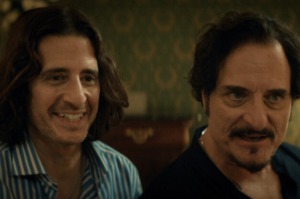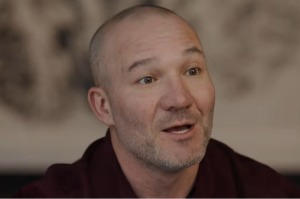Richard Dawkins Reveals He Is Agnostic
When Richard Dawkins, the world-famous evolutionary biologist, and Rowan Williams, Archbishop of Canterbury, took the stage at the United Kingdom's University of Oxford for a discussion over the origins of nature on Thursday, almost everyone thought the university had pitted an atheist against a Christian. Almost everyone was wrong.
Dawkins revealed that he is in fact not an atheist as he is not 100 percent sure God doesn't exist.
The discussion, titled "The Nature of Human Beings and the Question of Their Ultimate Origin," was moderated by philosopher and agnostic Sir Anthony Kenny.
"I don't know whether there's a God or not. I'm open to persuasion either way," said Kenny, as he explained why he sat between what he believed were an atheist and a Christian.
"I sit here as a representative of ignorance," he said jokingly.
So naturally, it was a surprise to him when Dawkins, who was described by Kenny as "the world's most famous atheist," said he is actually an agnostic, because he has no way of disproving God's existence.
Dawkins explained himself further by pointing to his book, The God Delusion, which contains in it a seven-point scale he created for people to evaluate their beliefs with. The number one on the scale means "I know God exists," and number seven means "I know he doesn't exist." On that scale, Dawkins said, he is a six (though he half-jokingly increased that number to a 6.9 later on in the discussion).
Dawkins doesn't identify himself with many other agnostics, he explained, because they believe that there is about a fifty-fifty chance that there is a God. He believes, by comparison, that the probability of the existence of any supernatural entity is lower than that.
"What I can't understand is why you don't see the extraordinary beauty of the idea that we can't explain the world, universe [and] life," Dawkins said to Williams.
"That is such a staggeringly elegant and beautiful thing. Why would you want to clutter up your worldview with something so messy as a God?"
The Archbishop – who said during the discussion that he believes in both God and evolution – said he agrees with Dawkins that creation is elegant and beautiful, but disagrees on other points.
"I don't see clutter coming into it at all ... I'm not thinking of God as an extra that has to be shoe-horned, somehow, into this," said Williams.
One question that was posed to Williams asked – under the assumption that the earth is billions of years old and that the Bible's writers had no scientific knowledge of how old it actually was at the time – if the writers of the Bible should have avoided writing about the origins of the earth?
"The writers of the Bible, inspired as I believe they were, were nonetheless not inspired to do twenty-first century physics. They were inspired to pass on to their readers what God wanted them to know," said Williams. "And that means, reading the first book of the Bible, what I look for is the basic information: The universe depends on God and God's freedom, humanity has a very distinctive role in that universe and, from the first measurable moment, humanity has made a rather conspicuous mess of that role."
Another major focus of the discussion was on human consciousness. The archbishop, who is the spiritual leader of the global Anglican Communion, pointed out that human beings are self-aware and have the ability to ask questions, tell jokes, fantasize and even pray – abilities that aren't seen in other animals.
Dawkins described human consciousness as "deeply mysterious," but said it is something he believes science will eventually figure out.
Kenny asked Williams if he thought the human soul survives death, and he said it does.
"The confidence that I, as a Christian, have about that is not the belief that there's something in me that will survive," said Williams. "It's a belief in the kind of God who does not terminate the relationship initiated from God's side as I develop and grow."
Both Dawkins and Williams have ties to the University of Oxford. The university's chancellor, Christopher Patten, explained before the discussion that there were three "packed" theaters in Oxford and people watching around the world via a live Web stream. The size of the audience, he said, helped to "underline the importance of this event."



























